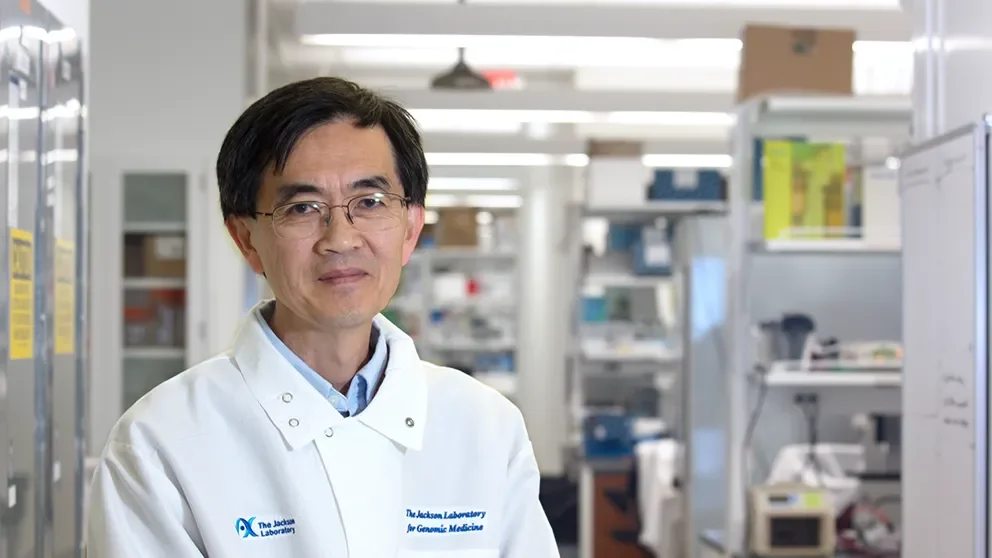JAX Professor Se-Jin Lee, M.D., Ph.D. honored with prestigious International Space Station award
Featured Article | November 22, 2021
Not so long ago, in the galaxy we call home, JAX sent its “Mighty Mice” into space to help researchers better understand the impact of microgravity on muscle and bone degeneration.
In December 2019, Professor Se-Jin Lee, M.D., Ph.D. and his co-investigator and wife, Dr. Emily Germain-Lee, M.D., professor of pediatrics at UConn School of Medicine and division head of pediatric endocrinology at Connecticut Children’s, led JAX’s Mighty Mice in Space program – an out-of-this-world research project in which genetically-engineered Mighty Mice were sent to the International Space Station to learn about the effect of microgravity on muscle and bone loss.
For this work, Lee has been awarded the prestigious 2020 International Space Station Research Development Conference (ISSRDC) Award. This honor is bestowed by the Center for Advancement of Science in Space, Inc., NASA, and the American Astronautical Society to individuals, like Lee, who have pushed the boundaries of space-based research. Lee was presented the award virtually during a conference in August 2021.
The mission that sent Lee’s genetically engineered mice to the International Space Station charted new frontiers in muscle research. The compelling results found that the Mighty Mice did, indeed, stay mighty in microgravity. This research has important implications for potential therapeutic strategies for space exploration and recovery after returning to gravity, as well as for earthbound people suffering from disuse atrophy.
In addition to his research studies at The Jackson Laboratory for Genomic Medicine, Lee is a joint-faculty member at UConn School of Medicine and Presidential Distinguished Professor of Genetics and Genome Sciences at UConn. Lee’s Mighty Mice in Space program is among five other research projects awarded with ISSRDC awards in 2020.

